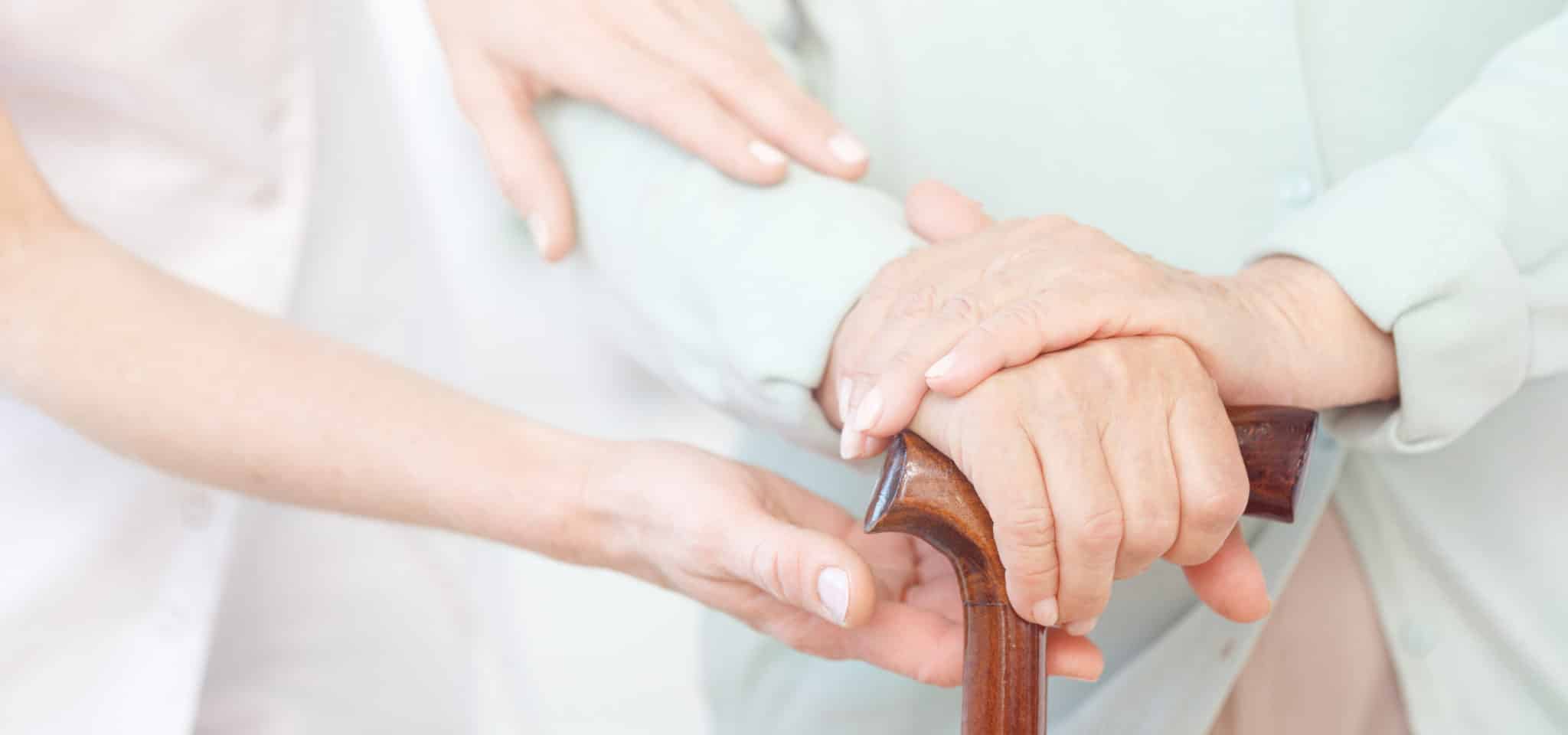Keep your freedom – age well and live at home into your “golden years” with these helpful hacks.
We tend to be complacent as long as everyone is functioning well. But no one thinks they’ll get sick until they get sick, or become injured until they fall. If you can foresee potential problems and head them off with these safety and wellness hacks while things are status quo, you can establish a proactive plan that everyone agrees to and help your parents (and you) to age well, at home, for as long as possible.
Most of us don’t even think about where we’ll spend our elder years until we face that reality with one or both of our parents. As time takes its toll on their bodies and minds, the challenge comes of deciding whether they can stay at home with modifications or if an assisted living or nursing facility needs to be considered. A lot goes into a decision like this, including whether good quality, natural health care options are still available in a residential facility, which is honestly a rare find.
I sat down with Lynda Shrager, OTR, MSW, CAPS, the author of Age In Place: A Guide to Modifying, Organizing, and Decluttering Mom and Dad’s Home (Bull Publishing, April 4, 2018), to get a better perspective on this increasingly common issue. Her newspaper column, Mom’s RX, has appeared in countless newspapers across the country, and she is a featured columnist for Everyday Health, one of the country’s leading online consumer health websites.
Should They Stay Home?
Today, some 90 percent of people age 65 and over say they want to spend their senior years in their homes, continuing to make independent choices and maintain control of their lives. Aging in place has psychological benefits in that it allows seniors to remain involved in activities of daily living in a familiar environment. This includes access to high quality, natural and integrative health care options that promote wellness and longevity beyond what mainstream medicine alone has to offer.
It also has financial benefits, as assisted living facilities cost an average of $50,000 annually. You can do a lot of natural and nutritional therapies for the “wellderly” for that amount of money yearly to hold on to optimal health for as long as possible. Integrative care and healing diets are also very popular with seniors who no longer want to take so many meds, finding side effects unbearable, and seeking more natural alternatives. Preserving independence at home is essential to maintaining access to these complimentary therapies.
To help them stay in their home for as long as possible, family members and caregivers need to ascertain if mom or dad are having any physical or cognitive problems and what plan they need to deploy before there’s a crisis. Aging in place can become risky, and getting aging parents on board with modifying their routines and surroundings can be a challenge. If your parents aren’t ready to budge from their place of residence, yet you sense a decline in either their home upkeep or self-care, it’s best to be proactive.
Doing the Detective Work
Their answer to “How are you doing?” will most likely be “We’re fine.” To make staying in their home viable, you’ll need to go on a fact-finding mission. This requires more than a phone call to check in with them.
Your sleuthing begins with an in-person visit to their home. Spend time with them as they move through their daily routines. Do they “furniture surf” when moving around the house? Are they unsteady on the steps when they go out to get the newspaper? Did their lost car keys end up in the refrigerator?
Once you’ve finished the walk, then it’s time to have the talk. While parents are never eager to hear that their abilities are becoming compromised, a presentation of your findings – stated within the context of addressing safety issues so that they can stay in their home – will help bring them on board.
Steps for Safety
Here are some issues you may find you need to address as you do your detective work:
- Attack the clutter to de-stress. Keepsakes are often what makes a house feel like a home, but cherished belongings accumulated over a lifetime morph into clutter. Clutter takes up precious space needed for moving around the house safely. The disorganization also contributes to stress. To make the case for decluttering, role-play with your parents that you’re first-time guests in the house. With fresh eyes, get them to notice where stacks of paper have accumulated, dusty trinkets have collected and miscellaneous items have gathered.
- Make modifications to aid mobility. Point out where you’ve observed any instability in your parents’ movement as they walk through their daily routines. Share ways to address how to improve safety and facilitate their mobility. Installing a handrail along the steps will improve stair-use stability. Install grab bars to help with exiting the tub or shower, and also opposite the toilet to provide leverage for sitting and standing back up. If using a suction grab bar, remember that it’s only for balance, not for bearing weight. In addition, insist on a safe step stool with one step only – any more may cause issues with equilibrium. If they use hard-to-access items regularly, move them to a counter or tabletop.
- Up the wattage to improve visibility. As we age, we need more light in order to see adequately. Good lighting is a key safety feature. Encourage mom and dad to increase the wattage of light bulbs in high-use areas, such as near the chair where dad sits to read or the desk where mom pays bills. A nightlight to illuminate the path from the bed to the bathroom is a necessary precaution. For hard to reach lamps, consider clapper-type lamps. And, if their dog tends to lie in the pathway from the bed to the bathroom at night, a glow-in-the-dark collar can keep him from becoming a tripping hazard.
- Delegate financial and household duties. If you sense that your parents are becoming overwhelmed with managing the bills and general household maintenance, your helpful hacks should include how best to delegate these duties. It may be time to assemble a team of helpers. Do they have a handy man who can make regular calls?
Finances may need to be relegated to a family member to whom they give power of attorney. It’s now easy to remotely assist them by setting up online banking, direct deposits of Social Security or pension checks and automatic bill payments. Help them create a “treasure map” of where important records, documents and belongings are kept. Create duplicate house keys, plastic access cards, electronic door openers and combinations to any locks. Label keys and be sure to distribute copies to designated friends and family.
- Keep emergency numbers close at hand. Help mom and dad create an emergency list containing phone numbers for local ambulance companies, fire, police and hospital emergency rooms, and post it in a prominent place. Both of you should have that list, plus contact information of all family, friends and neighbors who live close enough to get to them quickly. Keep the list accessible at all times, and make sure to keep the various contacts updated.
Wellness Hacks for Seniors
We now have such a healthy sub-group of seniors, I refer to them as the “wellderly.” Whether they are relatively new to healthy eating and boosting metabolism with nutritional supplements or are old pros at being holistically healthy, they share many of these characteristics:
- Take charge of their own health. The wellderly do the research and seek out like-minded practitioners who treat their issues within their naturally-minded healthcare beliefs. They ask questions, both of their practitioners and of others who have successfully healed from the issues they face, and make their own decisions on their treatment plans. They get regular screenings to head off any nutrient imbalances before they become a full-blown diagnosis.
- Stay social. These seniors don’t isolate themselves from family and community who seek to support them and build them up. Nurturing these relationships is essential to thriving in their advancing years, and they keep them up through everything from group activities to social media.
- Keep moving. It’s true – if you don’t use it, you lose it. Healthy, active older adults know that to keep your mobility and balance, you need to move your body through daily stretching and exercise. Staying active helps you stay flexible, strong and healthy at any age. Exercise has amazing health benefits for the body, mind and spirit whether you are 1 or 100.
- Get a good night’s sleep. Sleep is the key to rejuvenation and cellular repair, and is essential for healthy aging. Insomnia responds well to natural therapies from mindfulness and massage to nutritional supplements and daily exercise.
- Eat a balanced, healthy, organic diet. The wellderly fuel their bodies with the best quality, most nutrient-dense foods available, free of disease-causing chemicals. This means eating organic produce and grains, and grass-fed, free-range meats. My Fat Flush Plan is perfect for aging well with a healthy lifestyle.
Learn more about Lynda Shrager, OTR, MSW, CAPS at otherwisehealthy.com.










5 Responses
Helpful information — thanks for posting on this timely topic.
Very nice! Thank you. Good, helpful, practical information as usual.
I love everything you bring up! I would add, getting our elders on ASEA redox signaling molecules will actually decrease their aging issues and give them many more years of activity and brain power. Many report returning back to their old activites and able to do things they have not done for many years. If anyone here is on Facebook, can learn more at: Redox Signaling Molecules Skin Brain Body Detox EMF Klnghardt …
Great article. It is our duty to ensure our parents are well taken of in their golden years. I’m always encouraging my parents whom are both retired to go out and do stuff, take up a class, hobby anything to keep their minds active and nimble. Sure beats staying at home and sitting on a rocking chair.
Don’t forget about our grandparents as well. I recently bought for my grandmother a handphone made for the elderly. I pre-programmed all the important numbers into the phone and taught her how to use it.